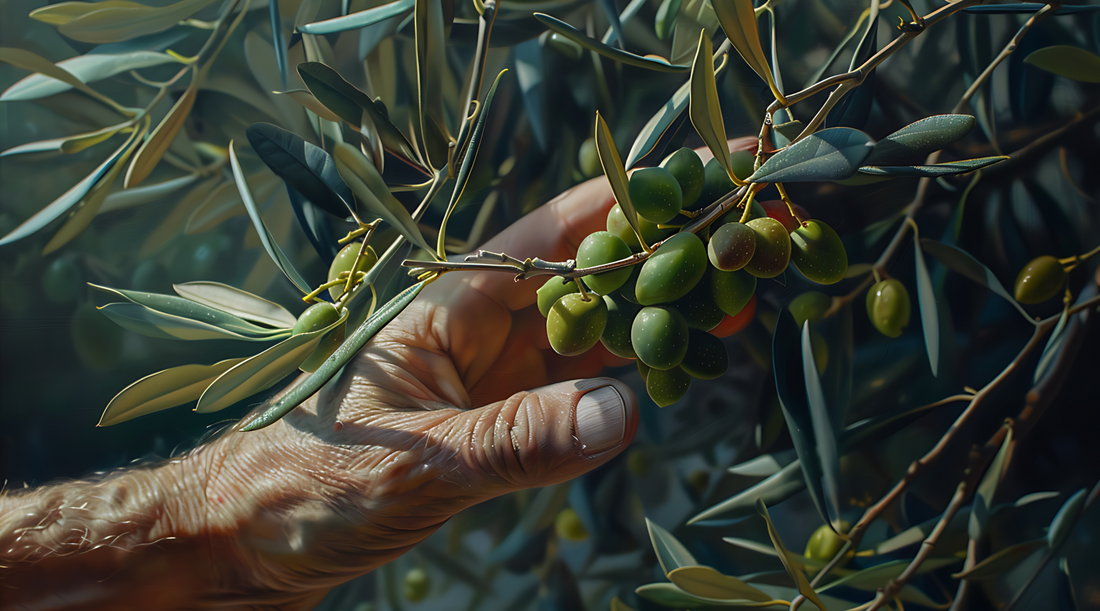
Olive Oil Traditions: A Look at Palestinian Harvesting Technique
Olive oil has never simply been a culinary ingredient for Palestinians. It has been a rich possession that holds immense value in Palestinian culture and traditions. Palestinian olive oil is also symbolic of the nation’s history and spirit of perseverance. Palestinians consider olive oil products to be liquid gold, holding great cultural and financial value.
Almost 12 million olive trees are planted across the West Bank, which sustains the livelihood of nearly 100,000 Palestinian families and contributes to a quarter of Palestine's gross agricultural income. People looking for the best olive oil to enhance their cooking experience should consider Holy Land Dates, which endorses and recognizes Palestinian culture and spirit.
The Harvest Season
The harvesting of Palestinian olive oil is a family business. The skills and knowledge related to olive harvesting are passed down through generations and are considered a legacy for Palestinian families. Olive oil in Palestine is produced using precise, traditional methods, preserving its authentic quality and goodness.
The olive harvest is a very special event for Palestinian families. The ideal period for harvesting begins in October and lasts until November. Each year, Palestinian farming families eagerly await the olive harvest season, as it determines the outcome of the entire year’s hard work and dedication.
Olives are harvested manually, often with the help of modern technology. The timing and technique used in the process are crucial to the quality and ripeness of the fruit. Both green and black olives yield different flavours: for a peppery and robust taste, green olives are preferred, while black olives provide a milder, fruitier flavour.
Even children take time off from school during the harvest season to fully participate in the process, guided by their elders. The olives are first collected on tarps, then transferred to buckets, and finally stored in crop bags. Olive farming is a major contributor to Palestine's economy, and olive orchards are treasured as part of Palestinian heritage.
Techniques Used For Harvesting
Palestinian farmers use traditional methods for olive harvesting that have been passed down by their ancestors. These methods ensure that the best olive oil is produced from the fruit while minimizing environmental impact. In this blog, we will explore the different traditional techniques that Palestinian farmers use during the olive harvest.
- Hand-Picking
This is the most common and reliable technique used by Palestinian farmers. They delicately pluck the olives from the trees to ensure that only ripe fruits are selected to make the best olive oil.
- The Use of Tarps
Palestinian farmers lay out large tarps beneath olive trees. They then shake the trees vigorously, causing the olives to fall onto the tarps. Afterward, the farmers collect the olives and handpick the best ones from the entire lot. The use of tarps reduces the likelihood of fruit loss.
- Beating of Olive trees
An ancient technique used by Palestinian farmers is "olive beating." The farmers use a stick, called a matraq or falqa, to beat the branches of the olive trees until the fruit drops onto the tarps below. They strike the branches in a way that does not damage or break them. Once the olives have been collected in the tarps, the farmers sort through them.
- Sorting and Transporting
After the olives are harvested, they undergo a sorting process in which farmers carefully remove any twigs, leaves, or damaged fruit. The carefully selected olives are then transported to local mills, where they are processed into the finest Palestinian olive oil.
The Process Of Milling
After the olives are taken to local mills, the process of oil extraction begins. First, the olives are cleaned of any debris or dirt. After cleaning, the olives are crushed using large stone mills, turning the olive into a paste from which the olive oil is extracted. The olive paste is spread onto mats, which are stacked on top of each other and pressed using traditional stone presses or hydraulic presses. The pressure on the paste separates water and solid contents, extracting the Palestinian olive oil. After the final step of oil extraction, the oil is left to settle for several hours. Naturally, over time, any remaining water content separates and is drained off. What remains is pure, extra virgin olive oil.
